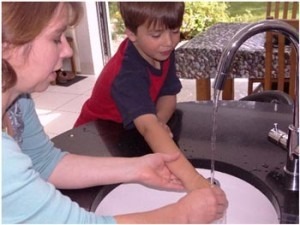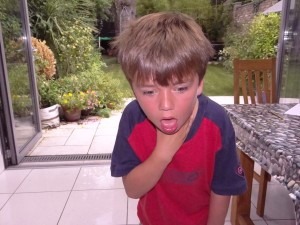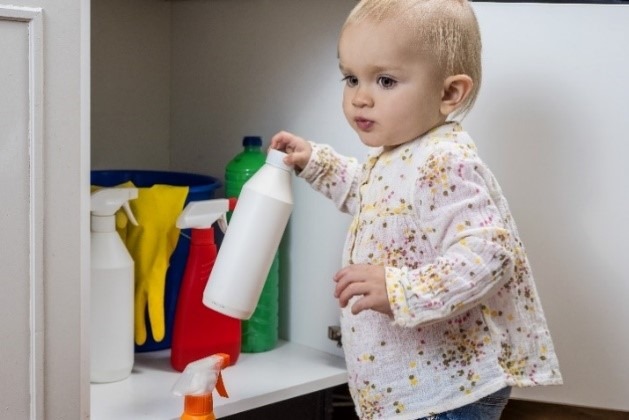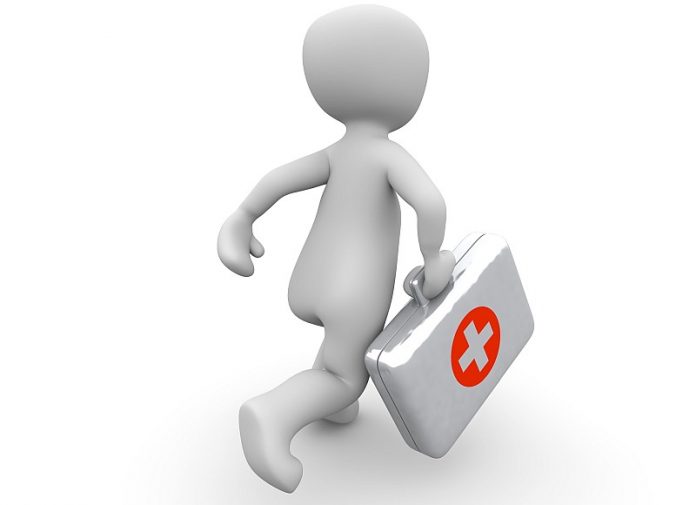Written by Emma Hammett, First Aid for Life
Protecting our children is fundamental for parents and we strive to do what we can to keep them safe. Despite our best efforts around 2 million children every year attend A&E due to accidents. More children die each year due to accidents than from Leukaemia or Meningitis and a third of parents have had to rush their child to hospital at some point because of an accident in the home.
Six of the most common reasons for accidents are:
- Falls
- Burns
- Choking
- Suffocation/strangulation
- Poisoning
- Drowning
Children should not be wrapped in cotton wool and minor bumps and bruises are inevitable and healthy. However, there are simple safety precautions that all parents can easily take to minimise the risk of little ones having accidents and stay one step ahead.
Falls
- Fit safety gates to your stairs before your baby starts crawling.
- Fit safety locks to windows.
- Never leave chairs, large plant pots, or furniture near windows, work surfaces, balconies or anywhere dangerous a baby or child could climb onto.
- Secure furniture – particularly bookcases, chest of drawers and TVs – to the wall to prevent them toppling and crushing a child if they try to climb up them.
- Bunk beds are not recommended for children under 6.
Burns
- Never place a cot by a radiator.
- Use a kettle with a short flex and keep it at the back of the work surface.
- Use the back rings of the cooker, turn pan handles away from the edge.
- Fit fireguards and radiator guards, turn off heated towel rails.
- Be particularly careful of irons, hair straighteners and other hot implements and keep them and their flexes well out of reach. Remember they stay hot for a long time after use.

For burns, hold the affected area under cool running water for at least 10 minutes. If the affected area on the child is red or blistered and larger than a 50p piece, call an ambulance. Keep cooling the burn whilst waiting for the paramedics.
Choking

Babies and young children can choke on anything small enough to fit through a loo roll. To prevent choking:
- Keep small objects and all batteries out of reach.
- Cut food into very small pieces.
- Supervise children while they’re eating, especially if they’re under five years old.
- Discourage older children from sharing their food with babies.
Suffocation/Strangulation
- Do not use duvets and pillows for babies under 12 months.
- Keep nappy sacks and small objects well away from babies – if they grab them they can easily suffocate as they don’t have the dexterity to remove them from their faces.
- Keep pets away from small babies and never leave a pet unattended with a child.
- Never hang drawstring bags on cots, avoid cot bumpers which tie around the cot and use blind cord clips or choose a cordless blind.
- Keep plastic bags and packaging out of reach and dispose of them carefully.
- Never put necklaces or dummies round a baby’s neck.
Poisoning

Some household chemicals are incredibly toxic to children and can cause seizures, vomiting, blurred vision, acute anaphylaxis or be fatal.
- Keep all potentially harmful substances out of reach of small children and ideally in a locked cupboard. This includes dishwasher tablets, medicines, alcohol, cosmetics, DIY supplies, cleaning and gardening products and poisonous plants.
- Never decant medication or any other products into different containers. Always use the original containers, clearly labelled, ideally with childproof lids.
- Keep batteries out of reach of small children and ensure that batteries in their toys are firmly secured. Batteries can burn a child’s intestine, causing irreparable damage.
- Fit carbon monoxide alarms and have appliances and alarms regularly checked.
- Buy dishwasher capsules rather than powder as they are less likely to be swallowed and choose cleaning products containing Bitrex which is bitter enough to discourage children from swallowing it. Children can easily mistake a dishwasher or washing machine capsule for a sweet. Cleaning products are strong alkali and will burn the child’s intestine.
- Store medication carefully, be particularly careful with birth control pills and analgesics, that are commonly kept on the bedside cabinet.
Drowning
Children should always be supervised as they can drown in just a couple of centimetres of water. They should never be left alone in a bath, even for a short time. Be vigilant around pools and ponds which should have safety features, such as fencing and gates. If you have been playing with water, always empty bowls and buckets immediately after use. Drowning can happen quickly and quietly (unlike the way it is portrayed in films) and causes a frightening number of fatalities every year.
First Aid for Life provides this information for guidance and it is not in any way a substitute for medical advice. First Aid for Life is not responsible or liable for any diagnosis made or actions taken based on this information. The best way to be prepared for action in an emergency is to attend a practical first aid course or do one online.
Burns, Falls and Emergency Calls – The ultimate guide to the prevention and treatment of childhood accidents, is a fabulous resource to help you stay one step ahead preventing accidents and understand how to help should an accident occur.


















